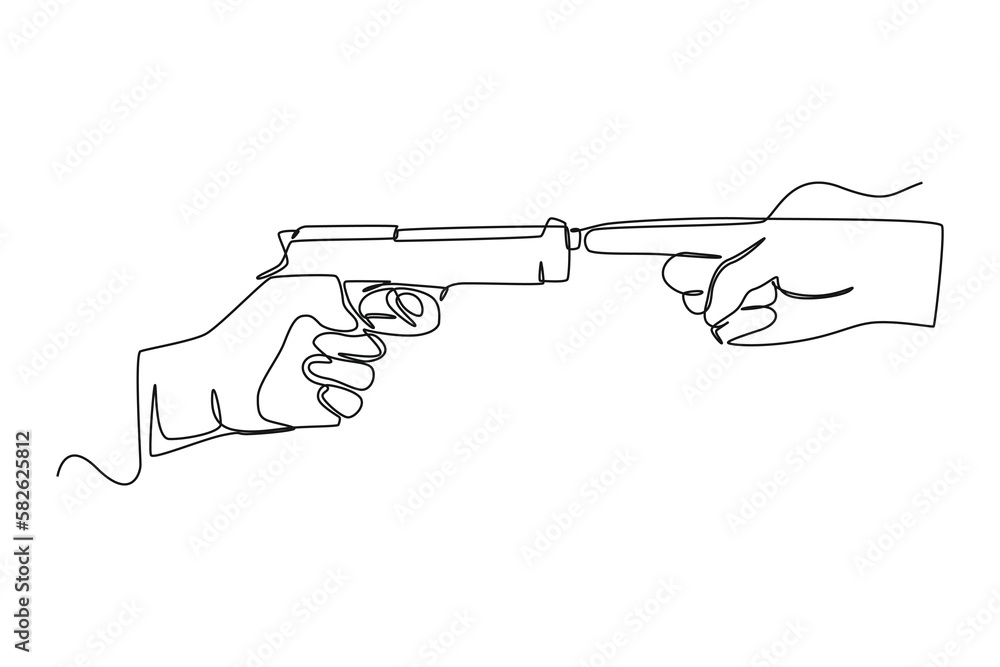The Bahá’í Faith, emerging in the 19th century as a new religious paradigm, encapsulates a myriad of teachings concerning the sanctity of life, the moral implications of violence, and the contrasts between spiritual development and sociopolitical injustices. Within its teachings lie profound insights into the ethos surrounding the subject of firearms, violence, and the overarching doctrine that elevates human compassion and unity above all else. This discourse aims to examine the Bahá’í approach to guns and murder, scrutinizing where the community might draw ethical lines regarding the use of force.
To commence this exploration, it is essential to comprehend the Bahá’í perspective on life as an inviolable gift. Central to the beliefs of the Bahá’í Faith is the recognition of the inherent dignity and worth of every human being. The fundamental principle underlying this viewpoint is that human life is sacred, intricately woven into the fabric of divine creation. As such, the act of taking a life through violence or murder is not merely a transgression against societal law but a grievous sin against the will of God. Thus, firearms—often seen as instruments of destruction—become peripherally linked to deeper moral quandaries that provoke significant theological and ethical deliberation.
Another critical element of the Bahá’í teachings is the concept of unity and collective well-being. The Bahá’í Faith posits that peace is a prerequisite for genuine progress; societal harmony and global cooperation are emphasized over individualistic or militant pursuits. The proliferation of guns and the associated culture of violence starkly contradict the Bahá’í vision of a united global community. This dichotomy fuels a fascination with gun culture in contemporary society—not merely as a subject of political debate but as a manifestation of deeper fears, historical grievances, and sociocultural divisions.
Furthermore, the allure of firearms can be examined through the lens of the psychology of fear and protection. Many individuals gravitate toward the possession of guns as a means of self-defense, often rooted in historical traumas or societal instability. The Bahá’í teachings illuminate a path that advocates for trust and reliance on God, rather than an overreliance on material means of protection. This perspective invites individuals to wrestle with the deeper implications of firearms: rather than empowering them, do guns serve to entrench feelings of vulnerability and anxiety within communities?
Moreover, pertinent to this discussion is the Bahá’í injunction against violence, which extends beyond the mere physicals of murder. Violence, in a broader context, embodies actions and thoughts that harbor ill will towards others. The teachings elucidate that mental and emotional violence can be as detrimental as the physical variant, fostering enmity and discord rather than love and understanding. Engaging with guns, therefore, transcends physical usage—it intertwines with the very fabric of community relations and personal conduct. In this sense, the Bahá’í articulates a holistic mode of existence where material weapons can be rendered obsolete through the cultivation of inner virtues and ethical principles.
Delving into the socio-political ramifications, the complex juxtaposition between gun control debates and the principles of freedom and autonomy emerges. Societies grappling with issues of gun violence frequently wrestle with balancing individual rights against collective security. The Bahá’í teachings advocate for a conscientious approach to governance that prioritizes the safety and welfare of all citizens over unbridled personal freedoms. Here, the question of where to draw the line resurfaces; it poses critical ethical dilemmas concerning civil liberties versus the overarching imperative of promoting peace and security.
Another intriguing dimension of this discourse involves the cultural transmission of ideologies surrounding violence. In many societies, gun ownership is steeped in tradition, patriotism, and identity. The glorification of firearms within particular cultural narratives complicates the Bahá’í message, which inherently seeks to dissolve divisive ideologies. This cultural fascination can often overshadow the cause of oneness that the Bahá’í Faith ardently promotes. Consequently, the community advocates for a reimagined narrative, one that heralds love, understanding, and the creation of harmonious interactions as superior to the influence of weapons.
Furthermore, the potential for reform within societal structures emerges as a holistic solution to the gun dilemma. The Bahá’í teachings emphasize education and moral upliftment as pivotal pathways to societal transformation. By instilling a sense of responsibility and ethical accountability within individuals, the societal fabric can evolve to reject violence and embrace dialogue as a conflict resolution tool. Here, the Bahá’í Faith argues for preventive measures over reactive ones—developing educational systems to enlighten future generations about the dangers of violence and the virtues of coexistence.
In conclusion, the Bahá’í perspective on guns and murder reveals an intricate tapestry of ethical reflections, societal implications, and personal responsibilities. It beckons a collective conscience that transcends superficial attractions to weapons by reflecting on the profound implications of violence on the human spirit. As individuals grapple with the allure of firearms, the teachings of the Bahá’í Faith implore a return to foundational principles of unity, compassion, and respect for life, drawing a clear line against the desensitization of humanity to violence. Through this lens, one begins to understand that true strength lies not in the possession of guns but in the unwavering commitment to cultivate a peaceful, respectful, and loving world.
